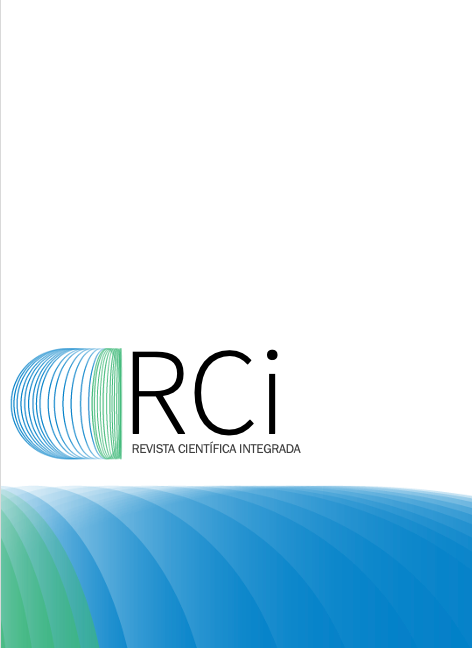The impact of the pandemic on the lived experience of people with bipolar affective disorder
DOI:
https://doi.org/10.59464/2359-4632.2024.3314Keywords:
Bipolar affective disorder, COVID-19, Mental healt, Phenomenology, PsychopathologyAbstract
Objective: This article aims to understand the impact of the COVID-19 pandemic on the lived experience of people with Bipolar Affective Disorder (BAD). Method: Using the critical phenomenological method, guided by the phenomenology of Merleau-Ponty, phenomenological interviews were carried out with 06 participants diagnosed with BAD who were already followed up by a health service linked to the teaching clinic of a University. Results: The units of meaning attributed to the interviewees' accounts were divided into four categories: 1) Intense and reduced cycles; 2) Imprisonment of existence; 3) The other that perplexes me; and 4) Dealing with feelings. The experiences described denote a reduction in the possibilities caused by feelings of fear, imprisonment, irritation, confusion and loss, which present themselves as a circular and intense void. Conclusion: The COVID-19 pandemic has impacted the lives of people who experience BAD by intensifying the complexity of their illness, making specific forms of care necessary which can provide the reconstruction of their experiences with BAD in the pandemic, as well as providing new meanings to their lives.
References
Tung, TC. Enigma bipolar: consequências, diagnóstico e tratamento do transtorno bipolar. São Paulo: MG Editores; 2007.
Cano-Ruiz P, Sanmartin-Salinas P, Gómez-Peinado A, Calero-Mora C, Gutiérrez-Rojas L. Diagnostic stability in bipolar disorder: a systematic review. Actas Esp Psiquiatr, 2020; 48(1): 28-35
American Psychiatric Association. Diagnostic and Statistical Manual of Mental Disorders: DSM – V. 5ª ed. Porto Alegre: Artmed; 2014
Tatossian A. A Fenomenologia Das Psicoses. São Paulo: Escuta; 2007.
Pan American Health Organization (PAHO). Epidemiological Update Coronavirus disease (COVID-19)[Internet]. Washigton, D.C.: PAHO/WHO; 18 september 2020. Available from: https://iris.paho.org/handle/10665.2/53105
Stefana A, Youngstrom EA, Chen J, Hinshaw S, Maxwell V, Michalak E, et al. The COVID-19 pandemic is a crisis and opportunity for bipolar disorder. Bipolar Disorders [Internet]. 2020; 22(6): 641-643. Available from: https://doi.org/10.1111/bdi.12949.
Huremović D. Psychiatriy of Pandemics: a mental helth response to infection outbreak. Springer International Publishing [Internet] 2019 [acesso]; 61(3): 300-301. Available from: https://doi.org/10.3325%2Fcmj.2020.61.300
Moreira V. O método fenomenológico de Merleau-Ponty como ferramenta crítica na pesquisa em psicopatologia. Psicol. Reflex. Crit [Internet]. 2004; 17 (3): 447-456. Available from: https://doi.org/10.1590/S0102-79722004000300016
Giorgi A. Sobre o método fenomenológico utilizado como modo de pesquisa qualitativa nas ciências humanas: teoria prática e avaliação. In: Poupart J, Deslauriers J, Groulx L, Laperrière A, Mayer R, Pires A, organizadores. A pesquisa qualitativa: enfoques epistemológicos e metodológicos. Petrópolis: Vozes; 2008. P. 109-127.
Moreira V. Clínica Humanista-Fenomenológica: estudos em psicoterapia e em psicopatologia crítica. São Paulo: Annablume; 2009.
Merleau-Ponty M. A fenomenologia da percepção. 3ª ed. São Paulo: Martins Fontes; 2006.
Moreira V, Bloc L. Fenomenologia do tempo vivido no transtorno bipolar. Psic: Teoria e Pesq [Internet]. 2012 [Acesso]; 28(4):443–450. Available from: https://doi.org/10.1590/S0102-37722012000400005
Cardinalli, IE. Daseinanalyse e esquizofrenia: um estudo na obra de Merdard Boss. São Paulo: Educ: Co-published by the Fapesp; 2004
Aparecido MN, Corrêa LA, Uga DA. O intenso e vazio viver maníaco-melancólico. ConScientiae [Internet]. 2010 [acesso]; Saúde; 9(3): 510-520. Available from: https://www.redalyc.org/articulo.oa?id=92915180023
Cernicchiaro, A. Aceleração e automotismo: as subjetividades do isolamento. Heterotopías del Área de Estudios Críticos del Discurso [Internet]. 2020 [acesso]; 3(6): 1-19. Available from: https://revistas.unc.edu.ar/index.php/heterotopias/article/view/31805/32665
Fuchs T. Psychopathology of depression and mania: symptoms, phenomena and sydromes, Journal of Psychopathology. 2014; 20: 404-413.
Souza CP, Bloc LG, Moreira V. Corpo, Tempo, Espaço e Outro como condições de possibilidade do vivido (psico)patológico. Estud. e Pesqui. Psicol. [Internet]. 2020; 20: 1253-1272. Available from: 10.12957/epp.2020.56660.
Forghieri YC. Psicologia Fenomenológica: fundamentos, método e pesquisa. São Paulo: Pioneira Thomson Leanirng. 2004
Chamond J, Moreira V, Decocq F, Lery-Viémon, B. La dénaturation carcérale. Pourn une psychologie et une phénoménologie du corps em prison. L`information psychiatrique [Internet]. 2014 [acesso]; 90(8): 673-682. Available from: 10.1684/ipe.2014.1252
Freitas JL. Luto e Fenomenologia: uma proposta compreensiva. Rev. Abordagem Gestáltica [Internet], 2013 [acesso]; 19(1): 97-105. Available from: http://pepsic.bvsalud.org/scielo.php?script=sci_arttext&pid=S1809-68672013000100013
Binswanger L. Mélancolie et manie: Etudes phénoménologiques. Paris: Presses Universitaires de France; 2005
Downloads
Published
How to Cite
Issue
Section
License
Copyright (c) 2024 Revista Científica Integrada

This work is licensed under a Creative Commons Attribution 4.0 International License.












